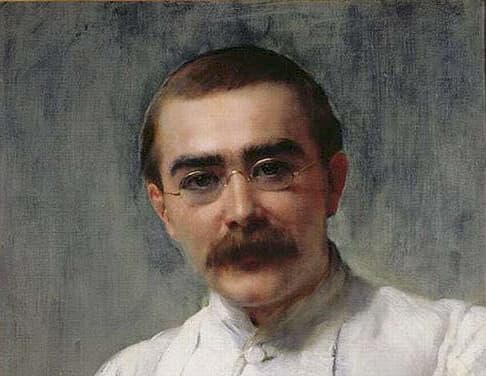Poem of the Day: ‘The Way through the Woods’
Rudyard Kipling’s was a talent that will not be buried under either the bombastic recitation of some of his devotees or the sneer of all of his detractors.

Once or twice a decade, someone makes the case for Rudyard Kipling (1865–1936), having rediscovered his depth and skill. And fairly so, for his was a talent that will not be buried under either the bombastic recitation of some of his devotees or the sneer of all of his detractors. In “The Way through the Woods,” he uses three- and four-foot lines, with an irregular rhyme scheme and echoes of the French forms that use repeated elements. (The phrase “through the woods” ends seven of the poem’s 25 lines.) And what starts as a little nature poem about the woods reclaiming an abandoned road becomes by the end a strange little invocation of ghosts and a glimpse of a mystical world.
The Way through the Woods
by Rudyard Kipling
They shut the road through the woods
Seventy years ago.
Weather and rain have undone it again,
And now you would never know
There was once a road through the woods
Before they planted the trees.
It is underneath the coppice and heath,
And the thin anemones.
Only the keeper sees
That, where the ring-dove broods,
And the badgers roll at ease,
There was once a road through the woods.
Yet, if you enter the woods
Of a summer evening late,
When the night-air cools on the trout-ringed pools
Where the otter whistles his mate,
(They fear not men in the woods,
Because they see so few.)
You will hear the beat of a horse’s feet,
And the swish of a skirt in the dew,
Steadily cantering through
The misty solitudes,
As though they perfectly knew
The old lost road through the woods.
But there is no road through the woods.
___________________________________________
With “Poem of the Day,” The New York Sun offers a daily portion of verse selected by the Sun’s poetry editor, Joseph Bottum of Dakota State University, with the help of the North Carolina poet Sally Thomas, The Sun’s associate poetry editor. Tied to the day, or the season, or just individual taste, the poems will be typically drawn from the lesser-known portion of the history of English verse. In the coming months we will be reaching out to contemporary poets for examples of current, primarily formalist work, to show that poetry can still serve as a delight to the ear, an instruction to the mind, and a tonic for the soul.
